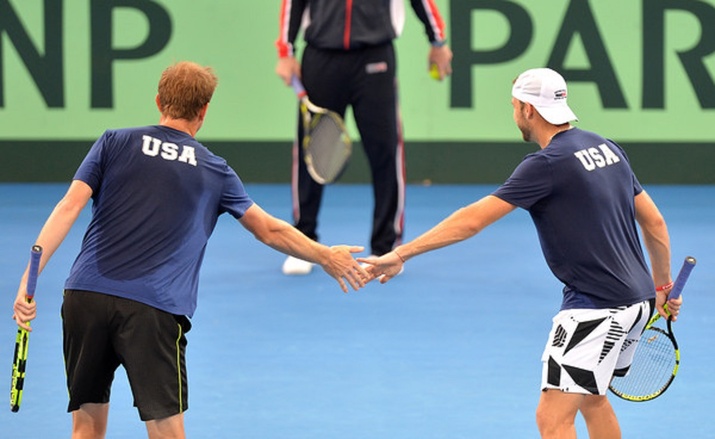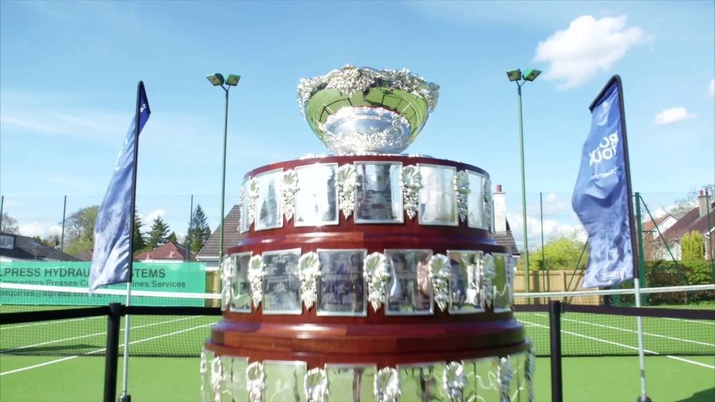Don't miss any stories → Follow Tennis View
FollowDavis Cup: Change on the Horizon
Last year, the inaugural Laver Cup, which pitted Team Europe against Team World, generated plenty of buzz. The vast majority of it was positive, and the event was deemed an immediate and overwhelming success. Not surprisingly, many found it impossible not to compare it to the other team competition in men's tennis, the Davis Cup, and suffice it to say, it was not a favorable comparison where the more historic competition was concerned. Whether or not that was the catalyst for change, folks may never know, but it was music to the ears when earlier this week International Tennis Federation President David Haggerty announced that the ITF was on the verge of making some much-needed adjustments to Davis Cup.
In a nutshell, the ITF would enter into a 25-year, $3 billion-dollar partnership with Kosmos to stage a “World Cup” of tennis. It would be played over the course of what would traditionally be the week of the Davis Cup Final and feature eighteen teams. It would utilize a round-robin format similar to that of the ATP World Tour Finals with the knockout round commencing in the quarterfinals. This is a much more condensed format compared to the current model, which features ties played on four different weekends over the course of the season in various countries around the world.

Overall, this would seem to be a great plan, but it is not without its drawbacks. The biggest of those drawbacks is that with the event only being staged over one week at a single venue, it eliminates the advantage and atmosphere of the home ties. Squads will no longer have the advantage of selecting a surface that favors them over their opponents. Furthermore, the rowdy, raucous, and festive home atmosphere, which is so hard to replicate throughout the rest of the season, will likely be missing to some degree in this new format.
In addition to the loss of the home ties, another minor drawback is that if this new format does what the powers-at-be hope it will, there may be fewer Cinderella stories. One of the most common complaints about Davis Cup is that the top names do not participate with enough frequency. Their absence, however, opens the door for journeymen players, some of whom rarely are able to venture outside of the Challengers or qualifying rounds, to step into their shoes. Over the years, fans have seen more than a few of these competitors really rise to the occasion to achieve what will be the crowning moments of their careers.
But with all due respect to these cons, there are too many pros for the ITF not to move forward with these proposed changes. There is no denying that Davis Cup has becoming increasingly irrelevant in a crowded calendar, and that is a result in large part to the lack of consistent star power. The established elite can hardly be blamed for not wanting to commit to multiple ties though, particularly given that they do not know where or on what surface they will be played. By reducing the Davis Cup to a single week, players will now know where and when they will be expected to compete, and when factoring in travel and preparation, it will also ultimately require less of a commitment of their valuable time than the current format does. It is a recipe that must look more enticing to the biggest names.

Condensing the team competition to a single week is arguably one of the best ways to help put it back in the spotlight as well. As noted, Davis Cup tends to get lost in a crowded tennis calendar, with the focus spread to all corners the globe at various junctures in the season. By assigning it a single week, at a single venue where all the teams will compete, all the attention is directed to that one place in time. As it can travel to different host cities, it also presents an opportunity to bring that magnified focus to areas of the world that field Davis Cup Teams that might not be able to wrangle that level of attention on their own.
It is natural to get excited about these positives, but it is important not to put the horse before the cart. The ITF has not yet enacted any of the proposed changes. It is encouraging, however, that they did unanimously endorse the proposed changes, which will be reviewed at the ITF's general meeting in August. One hopes the changes will garner approval, and whatever adjustments may need to be made in the future, it is fantastic to see that the ball has finally gotten rolling to start making the Davis Cup relevant in tennis once again.










